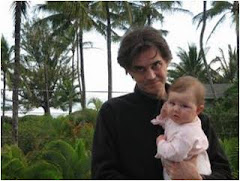As a second installment in the “Overlooked Aspects of Leadership” series, I turn once again to the Berlin School Executive MBA theses. Lucia Tarbajovska, Vice President of Marketing Communications at T-Mobile, researched and wrote about fear. Like Craig Markus’ work, this study was a truly original piece of research and writing; indeed, this thesis was awarded the Michael Conrad Award for Best Thesis in the Graduating Class.
Just like with Markus’ work on rage and grace, Tarbajovska’s work on fear delves into the psyche of leadership. Fear is an emotion we are all familiar with, but spend far too little time acknowledging and talking about. Fear of failure; fear of the unknown; fear of disappointing; for some, even fear of succeeding. We all know these experiences, and they shape the way we approach problems, work, relationships, life in fundamental ways. In Tarbajovska’s empirical survey on the topic, she found that nearly 90% of the creative leaders that participated in her survey acknowledged that fear is a critical factor influencing the ways they make decisions and ultimately influencing creativity.
And, for leaders of organizations, the stakes are high. Inasmuch as these experiences and emotions live deep inside of us, they also live deep inside of organizations, and ignored or left unaddressed, they will ultimately drive an organization or a brand toward mediocrity.
Tarbajovska plainly stakes her claim on the relationship between leadership and fear, saying: “Leadership is all about confronting fears and overcoming them. Furthermore, it is not only about overcoming their own fears but fears of people around them, all stakeholders - people they lead directly and the entire employee base, partners, suppliers, shareholders, public etc. And not only that, it is about overcoming the systems that we live in – the structures, the norms, the templates, the processes, the hierarchies, the rules, the guides etc… Most leaders are under a constant pressure of fear of failure that ultimately locks them in a routine and pushes them to comfort zones, to consensus, to mediocre decisions… [Yet] a business environment like [the current economic crisis] requires managers to be courageous. I suggest taking it a step further by adopting courage as a key value of your organization and injecting it into your organizational culture. The courage to listen, act, make mistakes, admit failure – or rather promote it as learning, and most importantly stay the courage is essential to survival in times like these – the times of economic crisis and separates successful businesses from the rest in more stable times.”
In my reading of Tarbajovska’s thesis, there are three key points that come out of the discussion. First, she argues that, with respect to organizations and brands, it is not just general fear that drives us. It is actually the fear to differentiate. If you were to boil down strategy guru Michael Porter’s views on what lies at the core of effective strategy, differentiation would be a central theme. But, according to Tarbajovska, we fear this more than anything else: We are much more comfortable staying within the norms of society and the norms of the competition because there are signals all around us that this is a right and appropriate thing to do. Differentiation is the most important thing, but it is also the thing we fear the most.
Second, for leaders, the challenge is not just overcoming their own fear, it is about creating a culture of courage in the organizations they lead; it is about leading a team or an organization in which all members of that system live the values of fighting fear.
Third, creating an anti-fear culture is as much about organizational design as it is about simply being a fearless leader yourself. Great leaders must think hard about how to design an organizational system that produces and nurtures such a culture. Now Tarbajovska has her own views on how to structure an organization like this—low hierarchy, few rules, forcing people to stretch and rewarding mistakes. But the main insight here is the creative leaders need to think hard about how to structure their organizations to produce a culture of fearlessness.
Creative leaders that can accomplish that are truly great leaders.
Look for the final installment of "Overlooked Aspects of Leadership (Part III): Being Wrong"... Coming soon.
Subscribe to:
Post Comments (Atom)






thanks dough. very nice piece to read. once i get beack in shape and tempo i will get back to writing and would ask you for some advice. thanks again. lucia
ReplyDeleteDoug, this is my first look at your blog. I got there by researching "culture of fearlessness" as a project I'm onto now. Most of my expertise and research is on "culture of fear" directly but one has to know about both. Tarbjovska's thesis makes a lot of sense, and I'm glad you are talking about it. Because I am an educator-scholar, as well as a human development consultant, I tend to make things more complex often re: fear and fearlessness. I don't want to obfuscate things just because, or to intimidate others, not at all. I merely want ongoing problematization of things we so often take for granted-- and actually if you look at the literature, as I have for 20 years across disciplines, there is a lot of confusion and out and out conflict about the meaning of things so common as "fear" and "fearlessness"-- and this gets more conflicting when it comes to "culture of fear" and "culture of fearlessness"--so, slowly I'm developing a critical integral theory to sort this out somewhat for leaders and the like to be better informed and more effective in "fear management" (equals "fear education")-- sooooo, please check out my blog (//fearlessnessteach.blogspot.com) which is dedicated to my new book on these themes: "The World's Fearlessness Teachings: A Critical Integral Approach to Fear Management/Education for the 21st Century" (University Press of America, 2010). I'm selling signed copies too.
ReplyDelete-R. Michael Fisher, Ph.D.
www.feareducation.com